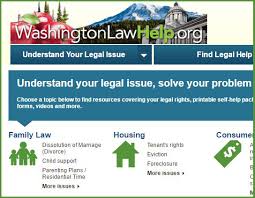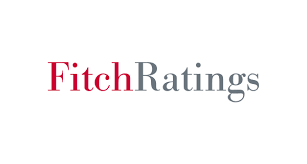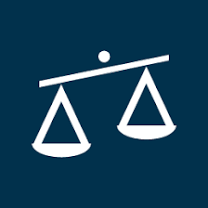vehicle deed of sale with assumption of mortgage

For purposes of computing the Massachusetts deeds excise imposed upon the conveyance of real property, may the amount of any mortgage upon the property be deducted from the consideration paid for it? DISCUSSION: Massachusetts imposes an excise upon the transfer of any deed, instrument or other writing whereby realty is conveyed to a purchaser. G.L. c. 64D, § 1. The excise is based upon the consideration given for the property and applies whenever the consideration, exclusive of the value of any lien or encumbrance remaining on the property, is greater than $100. The tax is paid by the person making or signing the deed and is evidenced by a stamp affixed to it, Id., § 2. The tax is $1.00 for each $500, or fraction, of consideration plus an additional tax of 14% of the tax imposed. Id., § 1.The deeds excise is imposed upon the entire consideration given for the property except to the extent of any "lien or encumbrance remaining" on it when the sale is consummated. Thus no deduction may be made for encumbrances placed on the property at the time of conveyance, but where the property is conveyed subject to existing encumbrances, the amount of the encumbrances is not taxable.

In the case of a new mortgage, the encumbrance is placed on the property at the time of the conveyance. The new mortgage is , therefore, not a "lien or encumbrance remaining," and may not be deducted.
motorcycle gear fullerton caThe excise is imposed to the full extent of the consideration paid, including the value of any mortgage given by the mortgagor.
1914 triumph motorcycle for saleArnold buys a house from Bennet for $150,000 and gives the bank a down payment of $30,000 and a mortgage for the remaining $120,000.
used 125 motorcycles for sale in lahoreThe deeds excise is imposed on the full consideration, $150,000 ($150,000/$500 x $1.14 = $342).
x4 motorcycle helmets
A novation substitutes a new party and discharges one of the original parties to a mortgage by the consent of all three parties.
motorcycle dealers in kennesawA new mortgage is created with the same terms as the original one;
gta 4 motorcycle chaseonly the parties are changed.
oem motorcycle parts hollandSince the mortgage created by a novation is an entirely new one, the encumbrance is placed on the property at the time of the conveyance. This new mortgage is, therefore, not a "lien or encumbrance remaining," and may not be deducted. The excise is computed as in Example 1, above.Deed in Lieu of Foreclosure. When a bank takes back a deed to property and cancels the mortgage debt in lieu of foreclosure, the liability of the mortgagor on the debt is totally extinguished whether or not any additional money is given for the property.

There is thus no "lien or encumbrance remaining" on the property and the consideration is the amount of the mortgage debt cancelled by the bank, plus any additional cash paid to the mortgagor.Mrs. Dalloway falls on hard times and is unable to maintain the mortgage on her house in the Strand. The bank agrees to take the deed to the property in lieu of foreclosure and pay here $25,000 in cash. There is $75,000 remaining on the mortgage. The deeds excise is imposed on $100,000, i.e., the amount of the mortgage debt cancelled plus the cash payment ($100,000/$500 x $1.14 = $228)."Where property is taken "subject to" a mortgage, the purchaser generally pays on the old mortgage note, although he is technically not liable for it; the seller is not released from liability for the note, but may be sued directly. In this instance, then, there is a prior "lien or encumbrance remaining on the property" at the time of sale since the old mortgage continues on the property. The amount of the remaining mortgage may be deducted from the sales price.

Dorothea buys a mill on the Floss and agrees to take the property "subject to" a prior mortgage for $150,000. Dorothea pays the bank $100,000 in cash. Here the deeds excise is computed by taking the full consideration and deducting the amount of the mortgage remaining. ($250,000 - $150,000 = $100,000/$500 x $1.14 = $228).Assumption Where the purchaser assumes a mortgage, the purchaser becomes liable for the mortgage debt by expressly agreeing to pay the note and assume primary liability for it. The seller, however, is still liable on the note as a surety. Since the old mortgage remains on the property, there is a "lien or encumbrance remaining," and the excise is computed as in Example 3, above.DIRECTIVE: Where a new mortgage is given or there is a novation, the amount of the mortgage debt may not be deducted before calculation of the deeds excise. There is also no deduction where the bank takes back a deed to property in lieu of foreclosure. Where there is an assumption of a prior existing mortgage or property is taken "subject to" such a mortgage, the amount of the mortgage debt is deductible.

REFERENCE: G.L. c. 64D, §§ 1, 2./s/Stephen W. Kidder Stephen W. Kidder Commissioner of RevenueThis Directive represents the official position of the Department of Revenue on the application of the law to the facts as stated. The Department and its personnel will follow this Directive, and taxpayers may rely upon it, unless it is revoked or modified pursuant to 830 CMR 62C.01(5)(e). In applying this Directive, however, the effect of subsequent legislation, regulations, court decisions, Directives, and TIRs must be considered, and Department personnel and taxpayers may rely upon this Directive only if the facts, circumstances and issues presented in other cases are substantially the same as those set forth in this Directive.How can I start my application? Get started through any of these convenient ways: Call us at , Monday – Friday, 7:00 am – 9:00 pm, and Saturday, 8:00 am – 4:30 pm Central Time. Find a local consultant and start the application process by phone or in person. Request a personal consultation to have a home mortgage consultant contact you.

Does Wells Fargo require a property inspection? No, but if you're buying a home, it's highly recommended that you obtain a property inspection and make your purchase offer contingent on the findings of the inspection. There is a difference between a property inspection and an appraisal. An appraisal is required by most mortgage lenders in order to support the value of the real estate and the terms of the mortgage agreement. Do I need an attorney? The decision to use an attorney is up to you. In general, real estate attorneys are involved in purchase transactions; refinancing generally doesn't require an attorney. There are many areas of the country where attorneys are not typically used in real estate transactions. What is the minimum down payment for conventional, FHA, and VA loans? Wells Fargo offers several low down payment options, including conventional loans (those not backed by a government agency). Conventional fixed-rate loans are available with a down payment as low as 3%.

FHA loans are available with as little as 3.5% down. VA loans offer low- and no-down payment options for eligible veterans and other eligible borrowers. To ensure eligibilty, please talk to a home mortgage consultant to discuss loan amount, loan type, property, and specific program requirements. How do I know if my mortgage is assumable? Not all mortgages are assumable, but you can tell if you have one by the language in your note and mortgage. You can also find out by speaking to one of our assumption specialists at 1-800-340-0570. If you have an existing assumable mortgage, you may be able to add or remove borrower(s) through an assumption loan. Common reasons for an assumption loan include divorce, legal separation, death, or direct purchase. In these situations, it may make sense to get an assumption loan instead of a traditional purchase or refinance if the terms of the existing mortgage are more favorable than those of a new loan. Potential benefits: May enhance the property's marketability, especially if interest rates are rising May not need a new appraisal, lender title policy, survey, and inspection Considerations: There are fees to assume a loan, including closing costs that must be paid separately from the mortgage.

The buyer or person assuming the loan must meet credit and income qualifications and provide requested documentation. For more information or to determine eligibility, call the Wells Fargo Assumption Department at 1-800-340-0570. How are interest rates determined? Interest rates are influenced by the financial markets and can change daily – or multiple times within the same day. The changes are based on many different economic indicators in the financial markets. View our current interest rates. What is a rate lock? A rate lock gives you protection from financial market fluctuations that could affect your interest rate range. You can choose to lock or not lock your interest rate range. On the date and time you lock, that interest rate range remains available to you for a set period of time. If there are no subsequent changes to your loan and your interest rate range is locked, the interest rate range on your application generally remains the same. If there are changes to your loan, your final interest rate at closing may be different.

What is the difference between “locking” and floating”? Locking ensures that your loan pricing will be unaffected during the lock-in period by giving you a specified period of protection from financial market fluctuations in interest rates. Locking sets the range of pricing available to you; it doesn’t guarantee that a specific rate will apply. Your final rate, which may not be determined until closing, will reflect the pricing that was available at the time you locked. Floating – or not locking – means your rate will fluctuate with the up and down movements of the market. The benefit to floating is if interest rates were to decrease, you would have the option of locking in at a lower level of rates. Refer to our Loan Pricing Disclosure for more information. When can I lock and how much does it cost? The fee for locking varies. You can lock anytime you locate a property, or start your refinancing process, up until ten business days before the closing. You can select a specific length of time for your lock, usually 60 days.

If I've already been preapproved by Wells Fargo, how long does it typically take to close? The time to close will vary, depending on your situation. Once you've been preapproved, closing generally occurs within the rate-lock period you've chosen, which can range from 30-90 days. If I have a Wells Fargo mortgage and want to refinance, will I have to pay closing costs again? There are costs related to processing any new loan application; they can include fees paid to third parties, such as an appraiser, the title company, and other closing expenses. What is an origination charge? The origination charge is the amount charged for services performed on the initial loan application and loan processing. This includes all charges (other than discount points) that lenders and brokers involved in the transaction will receive for originating the loan. It includes any fees for application, processing, underwriting services, and payments from the lender for origination. Can I close my loan at a Wells Fargo location?

Each state has its own specific closing requirements, so check with your closing representative for the details. Typically, closings can be held at Wells Fargo locations or at an attorney's office. Some states permit "mail away" - or "mail out" - closings. If you’re able to obtain a "mail away" closing, we will send you the documents using overnight delivery. How much money will be required at closing? The amount you'll need to close your loan includes your down payment, closing costs, and prepaid amounts for property taxes, and insurance escrow accounts. Prior to closing, you'll be informed of the final amount. Will homeowners insurance be required at closing? Proof of homeowners insurance will be required before you can close your loan. Typically, you will need to present an insurance binder and pay for one year's worth of insurance coverage. What is the difference between mortgage insurance and homeowners insurance? Mortgage insurance is required if you have less than 20% equity (or down payment) in your home and protects the mortgage lender from losses if a customer is unable to make payments and defaults on the loan.

There are two types of mortgage insurance, Private Mortgage Insurance (PMI) and Mortgage Insurance Premium (MIP). Learn more about PMI and MIP. A homeowners insurance (or hazard insurance) policy covers loss from damages to your home, your belongings and accidents as outlined in your policy. Learn more about homeowners insurance. What's mortgage insurance premium (MIP) and private mortgage insurance (PMI)? MIP and PMI are 2 types of mortgage insurance. They add a premium to your monthly mortgage payment but allow you to borrow a larger percentage of your home's value. The type of mortgage insurance you have depends on the type of loan you have. Learn more about how mortgage insurance works. How do I know if I have MIP or PMI? You have MIP if you have an FHA loan, which is a type of government loan. You have PMI if you have a loan that isn't under a government program and your down payment was less than 20%. You can also sign on to Wells Fargo Online® and visit the Escrow Details page of your mortgage account to learn which type of mortgage insurance you have.

When can my MIP be removed? Depending on when you either applied for or closed on your loan, your MIP may be automatically removed after a certain amount of time. Learn more about removing MIP. When can my PMI be removed? You may have options to cancel your PMI based on the original value of your home or by ordering a new appraisal. Learn more about removing PMI. What is title insurance? An insurance policy protects a lender and/or homebuyer (only if homebuyer purchases a separate policy, called owner's coverage) against any loss resulting from a title error or dispute. Is purchasing title insurance mandatory? All mortgage lenders require lender's coverage for an amount equal to the loan. It lasts until the loan is repaid. As with mortgage insurance, it protects the lender but the borrower pays the premium at closing. Can I have my mortgage payment deducted automatically from my checking or savings account each month? Typically, after closing your mortgage loan, you will have the option of enrolling in an automatic mortgage payment program.